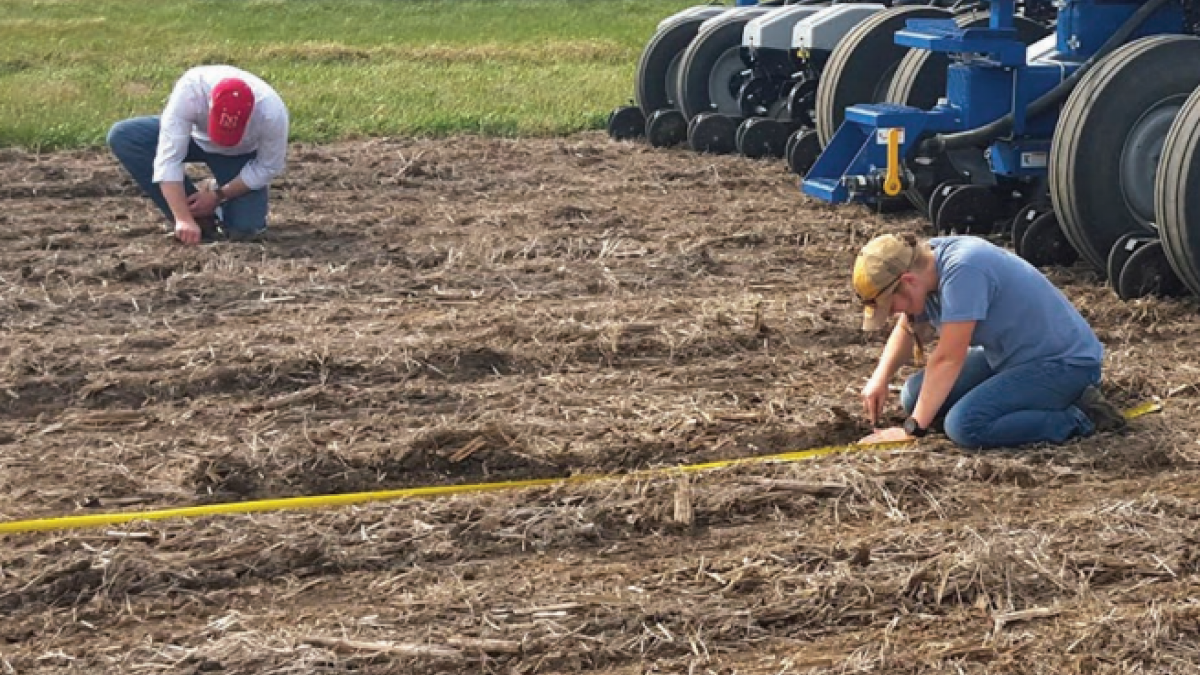
April 11, 2018
Lincoln, Neb. — The University of Nebraska–Lincoln has been named one of the world’s best four-year colleges for precision agriculture. PrecisionAg released their top 25 institutions based on feedback from peer institutions, industry experts, and internet searches.
Nebraska’s efforts in precision agriculture span its teaching, research and extension missions. Field research projects focus on the application of state-of-the-art technologies for improving input use efficiencies in cooperation with Nebraska producers and on university research farms. Results from these projects are communicated regularly through Nebraska Extension workshops and field days and are used in the classroom to teach students about site-specific crop management strategies.
“Precision agriculture will continue to play a critical role in the industry’s efforts to sustainably meet the food and fiber needs of a growing world population,” said Joe Luck, associate professor of biological systems engineering and extension precision agriculture specialist. “For the group working in this space at UNL to be recognized on PrecisionAg’s list of the institutions making strides in this area is a great honor.”
Project SENSE, for example, consists of a multidisciplinary team of precision agriculture research and extension personnel led by Richard Ferguson, professor and interim head of the Department of Agronomy and Horticulture. The team has worked for three years with local producers to examine how one new technology— crop canopy sensors —might benefit producers in the future. The project has identified the opportunity for reductions of up to 25 percent in nitrogen required with minimal losses of 2 to 3 bushels per acre in corn yield.
Another project demonstrated the potential application of multi-hybrid planters in corn and soybean production. The planter can plant at least two seed varieties in one trip through a field or manage multiple seed treatments from separate bulk tanks on the planter. Preliminary results indicated the potential for improved management in soybean fields with sudden death syndrome; drought tolerant hybrid placement studies produced inconsistent results. However further analysis may highlight the potential for risk mitigation in drought years. Results from the field sites have been distributed through extension’s On-Farm Research Network.
According to Luck, cooperation with local producers to conduct field research is a great opportunity for both parties involved to learn. And, he added, “The technological needs of a producer farming 1,000 acres are very different from a producer farming 10,000 acres.”
PrecisionAg is a diversified, independent media enterprise serving the global community using precision agriculture techniques. PrecisionAg includes multiple industry publications and a web presence.
To learn more about precision agriculture efforts at the University of Nebraska–Lincoln, visit https://cropwatch.unl.edu/ssm.
Joe Luck
Associate Professor and Precision Agriculture Engineer
Biological Systems Engineering
402-472-1488
jluck2@unl.edu